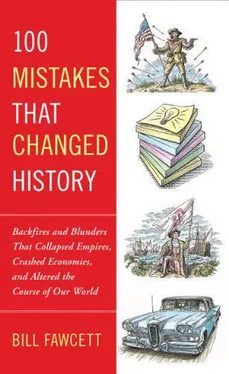The original economic strength of Rome was built on land. As the empire conquered more countries, more land was available to produce more goods, and the economy grew in proportion. Adding to the empire’s coffers was the sale by the state of captured soldiers or even families from newly conquered areas as slaves. Then the empire stopped expanding, and most of the land was already owned by the major families. With no more slaves or land to sell or grant, the wealth of the government had to come from taxes. Initially, being able to tax the rich families suited most emperors well. Those rich and influential noble families were the only real counterbalance to his power as emperor. So being able to tax them into poverty reinforced his own position by eliminating any competition. It was not too subtle economic warfare. And, of course, as always, the poorer classes much preferred the rich and noble families carry all of the tax burden.
But by the time of Emperor Nero, the well was running dry. The rich weren’t very rich anymore, and without them to create new income, by hiring the workers and buying from artisans, the entire Roman economy was slowing down. So to raise the money needed for the army and his court, Nero had to start taxing the poor and middle classes. This action slowed the economy even more, and it did not make the leader very popular with the masses, and that was even before the fire.
Nero, though, had grand plans for rebuilding the city of Rome in marble and erecting a palace for himself that would embarrass a modern Dubai emir. But with tax income down, there just weren’t enough coins—or silver to make new coins—to pay for all of his plans. Nero’s solution was to mint silver coins that weren’t all silver. This practice is called “debasing the currency.” This policy caused some inflation and unrest during his reign. Soon the older, undebased coins were being treated as more valuable, and they were. Nero’s debasing of the Roman currency set a precedent that many future emperors were happy to follow. By the reign of Claudius II Gothicus in 268 CE, the actual silver content of a “silver” denarius was less than 1 percent. There was not enough silver in a Roman silver coin to mine it if it had been ore. In value, the debased coins were the same as that of paper money today. They were a promise and symbol of wealth, but they had no intrinsic value. And the emperor found himself in a never-ending loop. With the coins worth less, the emperor needed more to pay for his army and bureaucrats. But if he minted more debased coins, the value of each coin was less. So he had to create even more coins with even less silver, and so it goes. The ever-creative Romans had managed to find a way to have both useless coins and runaway inflation.
The long-term effect on Rome of three centuries of gradual, and occasionally not so gradual, inflation was that the empire could afford to support fewer soldiers who were less well trained. It meant that governors had to press their provinces even harder to produce ever-increasing demands for more of ever-less-valuable coins to fill their treasury. The collapses of the Western Roman empire and, a thousand years later, of the Eastern or Byzantine Roman empire were not caused directly by debased coinage, but the practice certainly contributed.
It would be nice to think that knowing all of this might mean that modern governments would not make the same mistakes. Here is some food for thought: Seventy years ago the U.S. dollar was first devalued when the Federal Reserve Bank decided to raise the cost of an ounce of gold from $20.67 to $35 per ounce. Then thirty-five years ago, the value of gold or silver was totally detached from the U.S. dollar. That was called “going off the gold,” and later the United States went off the silver standard. It was then that the bills marked as silver certificates were withdrawn from circulation. That was because technically they could be turned in at a Federal Reserve Bank for silver coins or bars. Since then, nothing has actually supported the U.S. dollar, or most other currencies, beyond the faith and promise of each government.
Just like the Roman denarius, the gradual debasing of the value of the U.S. dollar has continued without slowing. With inflation and the growing price of gold, the dollar can buy only 10 percent as much gold as it could have in 1971. That means in terms of hard exchange, the United States has debased its currency 90 percent in the last forty years. With the deficit increasing, the spiral of inflation threatens. It seems we may have learned the wrong lesson from Nero.
Destroyed by a Victory
70
What have the Romans ever done for us? The Jews of the first century CE asked themselves that very question. Despite the obvious benefits so aptly pointed out in the opening scenes of Monty Python’s The Life of Brian , the Jews were not willing to give up all they held sacred for the sake of progress and profit. All the roads, running water, education, and medical attention in the world could not take the place of their religion. But for a time, it seemed that even a 3,000-year-old religion might not be able to withstand the might of the Roman empire.
Judea during the time of the early Roman empire was a volatile place. In addition to being inhabited by a people dead set on removing the Roman occupants, it was also filled with opposing factions within the Jewish community. One of these factions in particular used radical and violent means to try to push out the occupying forces. These Zealots grew tired of the religious leaders like the Pharisees and the Sadducees playing puppet to the Roman rulers. They also resented the corrupt reigns of incompetent political hacks who were the procurators that Rome had chosen to rule over Judea. Tensions came to a head around 66 CE, when the procurator, Gessius Florus, took seventeen talents of gold from the Temple treasury. That was a massive amount of wealth. Public outcry from both within the walls of Jerusalem and outside spread like wildfire. Florus answered this outcry by allowing his soldiers to pillage part of the city. In response, the city’s masses rose up against their Roman leaders and drove them out of Judea. Gessius Florus fled to the protection of another Roman garrison on the coast in Caesarea.
The people of Judea had more to contend with than corrupt government officials. Herod Agrippa the younger, who was king of Judea, had the right to nominate the high priest in Jerusalem. The Herod dynasty is sometimes a confusing one to follow, as they weren’t very innovative in naming their heirs. So, just to clear things up, this particular Herod was the nephew of Herod of Chalcis, the one mentioned in the Bible in Acts 25 and 30. Although he claimed to live by the laws of the Jews, Herod Agrippa lived with his uncle’s widow, and he spent most of his time in Rome, relishing the pagan lifestyle within the capital city.
The Zealots despised Agrippa and believed the only way to counter his oppressive regime was to start an open revolt. The Zealots demanded three things. All sacrifices to appease the emperor had to stop because they were in direct conflict with God’s law, the sanctity of the temple had to be preserved, and—most important—Judea had to have its independence. These were the only acceptable terms, and to show they were serious, the Zealots took control of the Temple in Jerusalem, while the less fanatical Jews held the rest of the city. The rebels immediately refused and forbade others to make the sacrifices required by Rome. Agrippa attempted to put the revolt down with the forces he had on hand. The Zealots led a Jewish army that first defeated Agrippa’s force of 3,000 horsemen and then later took the fortress of Masada.
Читать дальше












